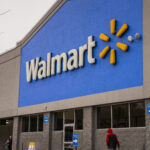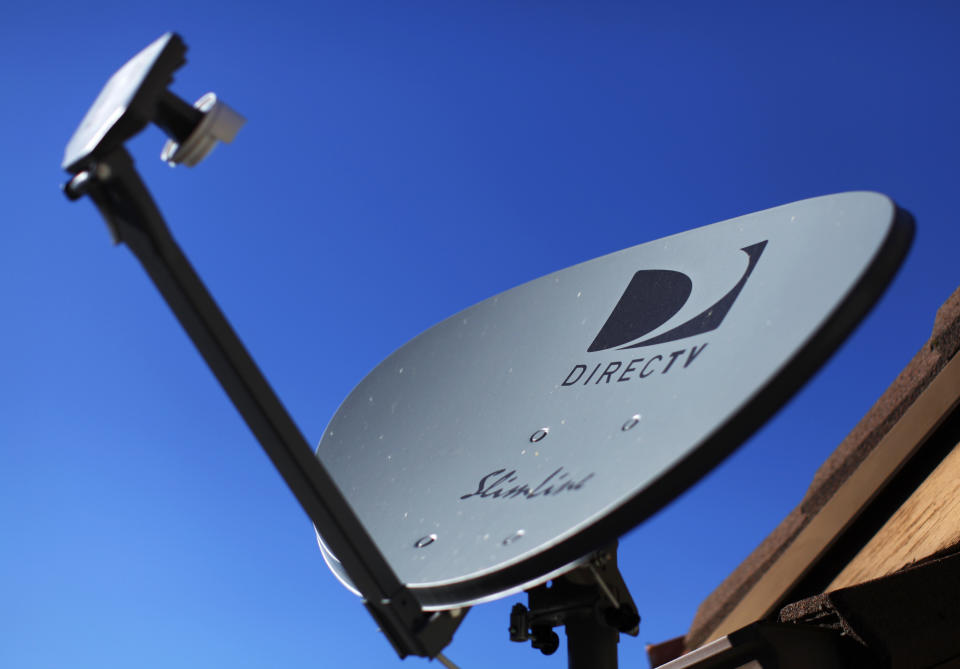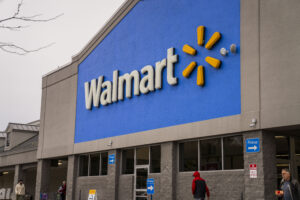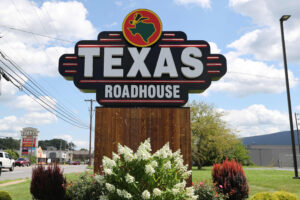Another big media acquisition has finally been confirmed.
Satellite TV provider DirecTV (T, TPG) said Monday it will buy rival Dish Network (SATS), including Dish’s streaming brand Sling TV, through a debt exchange transaction. Financial terms were not disclosed.
The deal, which is still subject to regulatory approval, is set to create one of the nation’s largest pay-TV providers.
“The combination of DirecTV and Dish will benefit US video consumers by creating a more robust competitive force in a video industry dominated by streaming services owned by large tech companies and programmers,” the companies said in a joint statement.
Shares in EchoStar, which owns Dish Network, fell by more than 11% on Monday following the news. The stock had surged nearly 10% on Friday after the acquisition rumors intensified.
Monday’s deal confirmation represents a full circle moment after both companies discussed a possible combination more than two decades ago.
In 2002, the Federal Communications Commission (FCC) blocked a proposal to combine the two entities, citing antitrust concerns. But it’s a much different environment this time around as subscriber losses have accelerated and more consumers cut the cord in favor of less expensive streaming services.
“It’s hard to imagine that regulators would block a deal,” MoffettNathanson analyst Craig Moffett wrote in an email to clients prior to the deal’s confirmation. But the analyst also warned that “synergies would likely be much more limited than you might imagine.”
He referenced the companies’ vastly different satellite portfolios, which he argued would not be “remotely worthwhile” to reconfigure in order for them to match.
“The biggest synergy would once have been to eliminate churn associated with customers moving back and forth between the two companies,” he said. “But today they each capture so few gross additions that cutting them, potentially even in half, wouldn’t amount to much.”
Still, the deal will help aid EchoStar’s heavy debt load while also helping cut costs for the owners of DirecTV. AT&T spun off DirecTV in 2021, moving it into a joint venture with private equity investor TPG. At the time, it was valued at about $16 billion with the telecom giant taking a $15.5 billion impairment charge in 2020 to account for subscriber losses.
DirecTV was dealt yet another blow after it lost its coveted Sunday Ticket package to Alphabet’s YouTube TV (GOOGL, GOOG) in late 2022.
Amid those struggles, AT&T revealed on Monday that it would sell its entire 70% stake to TPG for $7.6 billion in a move that allows the telecom operator to fully exit the TV business. The company previously had agreed to hold on to its stake in DirecTV for a three-year period, which expired on July 31.
The transaction, which the company said allows it to strengthen its balance sheet and focus on wireless 5G and fiber connectivity, is expected to close in the second half of next year.
“We see this transaction as a modest negative for AT&T,” KeyBanc analyst Brandon Nispel wrote on Monday, estimating about $3 billion of AT&T’s roughly $17.5 billion of free cash flow at the midpoint in 2024 comes from DirecTV.
“Without which we think AT&T begins to look more expensive to investors on a [free cash flow] basis,” Nispel said. “That said, we think this is ultimately a good thing for AT&T as it brings an end to the entertainment phase and focuses AT&T’s cash flow more on mobile and fiber.”
Ultimately, analysts are split when it comes to what the transaction could mean for the future of media.
Nispel argued a combined Dish and DirecTV entity could be negative for the industry as the company would have incremental negotiating leverage over programmers during affiliate renewals.
“We think that this could lead to more contentious affiliate renewals and potential blackouts while also likely limiting affiliate rate increases for the programmers,” he said.
Moffett, meanwhile, wrote in an updated note on Monday that “for media companies, not much will change.”
“Carriage agreements with both DirecTV and Dish have anticipated the likelihood of a merger for nearly two decades now,” he argued. “We wouldn’t expect any to allow for the kind of pick-and-choose provisions that once factored large in cable mergers. And remember that the combined company will be smaller than either DirecTV or Dish was on its own just a few years ago.”
All in all, Moffett said it’s clear a merger between the two should happen as “consolidation during a period of secular decline is always to be expected.”
“But it would be a mistake to overestimate its importance. Adding a year or so to the expected life of satellite TV isn’t going to change the narrative for programmers, distributors, or even for satellite TV.”
Alexandra is a Senior Reporter at Yahoo Finance. Follow her on X @alliecanal8193 and email her at [email protected]
Click here for the latest stock market news and in-depth analysis, including events that move stocks
Read the latest financial and business news from Yahoo Finance








